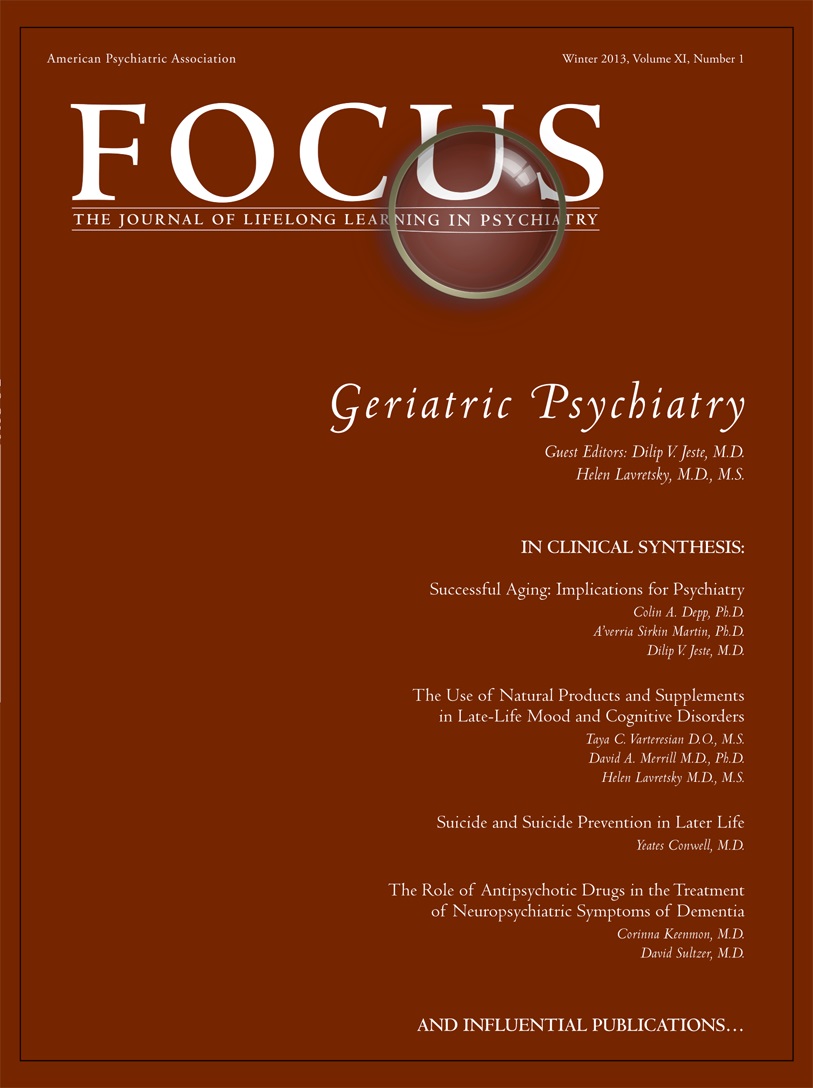The communication process is nuanced and complex, with many opportunities for miscommunication and missed communication. This process may be further complicated when communication is with an aging individual. Individuals over the age of 65 visit their doctor more often and, in contrast to generally held notions, are generally more heterogeneous than younger people (
1). Their wide range of life experiences and cultural backgrounds often influence their “perception of illness, willingness to adhere to medical regimens and ability to communicate effectively with health care providers” (
2). Communication can also be hindered by the normal aging process. Frequent correlates of aging are sensory loss (especially of hearing), memory decline, slower reaction and information processing times, and a diminishing power and influence over their own lives (
3). At a time when older patients have the greatest need to communicate effectively with their doctors, physiological and life changes often make it most difficult.
Clinical vignette
“Hi Mom,” a colleague piped loudly into her cell phone in the staff office. “How was your visit to the doctor?” There was a pause, then, “Didn’t you ask?” Another pause. “Yes, it sounds like he did talk fast. What is the name of the medication?” Another pause. “Did he say what it was for?” “Didn’t he tell you why you needed to go for an MRI? Which part of the body is the MRI for?” … “No, I don’t think it sounds like cancer.” … “Would you like me to call him and get more information?” “Do you have his number?” “Ok, I’ll call you back after I talk with him.” My colleague sighed heavily as she hung up the phone. I glanced over inquisitively.
“My mother has been complaining of a cough and she finally went to the doctor. It seems that an MRI was ordered and she is being prescribed a medication, but my mother, who is a pretty sharp lady even at 85, is really confused about what the doctor said, what medicine he prescribed, and what it is for. She has decided she must have cancer and is really upset. Why can’t doctors just explain things better? It seems that my mother practically needs an interpreter to understand the ‘medicalese’ the doctors speak when she goes to an appointment. I can’t always get away to go with her. Doctors should slow down when they talk. Or write down what they say.” I smiled sympathetically. I had had the same experience with my dad. “Do you think we do that with OUR patients?” my colleague suddenly blurted, the shocking thought of this possibility startling her and me.
The quality of the interpersonal communication between a patient and his/her health care providers plays a major role in patient health outcomes (
3). An empirical link has been established between patients’ satisfaction with their physicians’ communication style and their adherence to prescribed treatment (
4). Effective physician-patient communication is associated with increased psychological well-being and better biomedical outcomes (
3,
5). Likewise, poor physician-patient communication can lead to negative consequences, such as patient dissatisfaction, doctor shopping, poor adherence to medical recommendations, and malpractice litigation (
6). Positive physician–patient communication is especially important with an older patient, due to physical, cognitive, and psychological factors unique to the geriatric population. For example, elderly patients often present with more complicated medical conditions. This may complicate accurate psychiatric diagnosis and increases the potential for adverse medication interactions and side effects.
The physical signs of aging, including hearing, visual, and cognitive impairments, may act as a barrier to effective physician–patient communication. Psychological intergenerational differences complicate the physician–patient interaction even further. For instance, elderly patients tend to demonstrate respect for their physicians by being more passive in their interactions with them (
7). This may lead to a reluctance of elderly patients to request clarification and written information. Personal topics may be less likely to be broached (
8).
Research on doctor–patient communication indicates that physicians’ speech to elderly patients is, unfortunately, often characterized by a dismissive patronizing communication style (
9,
10). As effective communication is a crucial skill for all physicians working with an aging population, an instrument for assessing interactions between doctors and their elderly patients has been recently developed. This instrument, Assessment of Doctor-Elderly Patient Transactions (ADEPT), may be utilized by training programs, clinics, office practices, and academicians to help teach and assess the effectiveness of communication skills with geriatric patients (
11).
Robinson, White, and Houchins (
1) have postulated that making a physical and emotional connection is key to effective doctor-patient communication, especially with geriatric patients, and they have written practical recommendations for enhancing therapeutic rapport.

